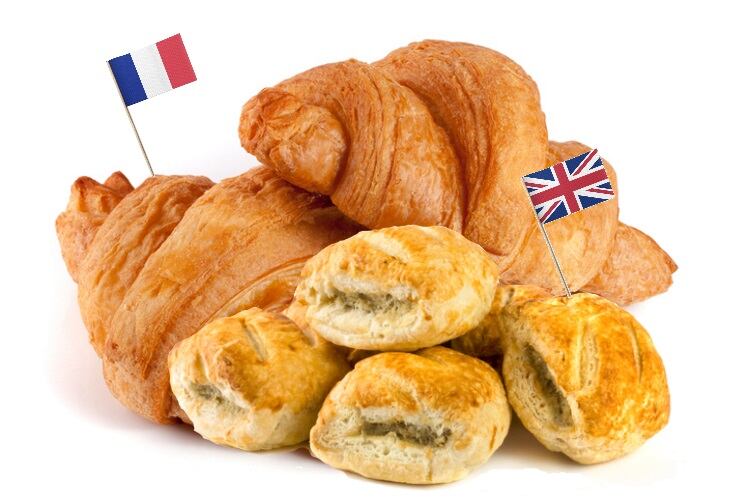The consumer watchdog said it had found traces of glycidol and acrylamide – chemical byproducts of the manufacturing process that increase the risk of cancer – in almost 90% of the 58 brands tested.
It also found traces of 3-MCPD – another chemical byproduct that can harm the kidneys and male fertility – in 35 of those brands.
The Council is advising bakery manufacturers to review their product formulations.
“Those elements were generated because of the heating of the oil at certain temperatures,” said Clement Chan Kam-wing, chairman of the Council’s publicity and community relations committee.
“We recommend manufacturers study the production process and try to replace the cooking oil.”
Last year, a study by the watchdog found traces of glycidol and 3-MCPD in almost 20 brands of margarine – one of the main types of oils used in making cookies – sold in Hong Kong.
Carcinogenic to humans
As glycidol and acrylamide are both classified as Group 2A carcinogens by the IARC, meaning they are ‘probably carcinogenic to humans’, the Joint Food and Agriculture Organization/World Health Organization Expert Committee on Food Additives (JECFA) has noted no safety limit can be set for the intake of these substances.
The International Agency for Research on Cancer has classified 3-MCPD as Group 2B, ‘possibly carcinogenic to humans’, while the European Food Safety Authority (EFSA) has set a limit of only 120 micrograms (0.00012g) of 3-MCPD per day for a healthy adult weighing 60kg (132 pounds).
The Council’s study found 48 brands of cookies and sweet pastries to contain acrylamide, with the Quadruple Belgian Chocolate Cookie by UK supermarket chain Sainsbury’s containing the highest trace, at 340mcg/kg.
Egg rolls made by Hong Kong company Yuen Long Wing Wah were found to contain 580mcg/kg of 3-MCPD, as well as the highest traces of glycidol, at 1,900 mcg/kg.
Butter egg rolls by Yu Pin King contained 1,700mcg/kg of glycidol.
When approached for comment, the distributor for Yu Pin King and Sainsbury’s said it had discontinued the egg rolls, but the Quadruple Belgian Chocolate Cookie met the standards set by the Hong Kong government.
Nutrition labeling discrepancies
The study – which took place between August and October last year – also revealed that 46 brands were mislabeled or missing information, particularly regarding the sugar, sodium and fat content.
Twenty-nine were found to exceed the stipulated tolerance limit in the variation in nutrient content, with one product from Conte de cookie – established by three executive chefs from some of Hong Kong’s six-star hotels – found to have a 210% difference between the indicated and actual sugar content.
The box was labeled as containing 7.3g of sugar for every 100g, however, tests found it actually contained 22.6g.
Another cookie brand, which declared the sodium content at 75mg/100g, was found to actually contain 170mg, a discrepancy of 127%.
According to the Council, foods are considered high in sugar when the content exceeds 15g/100g, and high in fat when 100g of food contains more than 20g of fat.
It has stressed that food safety and health are crucial consumer rights and is urging producers to improve their recipes to minimize contaminants and introduce low sugar, low fat, high fibre ingredients.
‘Accurate nutrient labels are essential for consumer to access information; inaccurate labelling could seriously affect one’s health, especially those with chronic diabetes and heart diseases,’ it said on its website.
It has given the test results to the Centre for Food Safety (CFS) for further action.
The study
The Council tested 58 brands of cookies and sweet pastries, including 46 pre-packaged brands with nutrition labels and 12 brands that are exempt from nutrition labeling requirements, including eight palmiers, three almond puffs, nine egg rolls, nine butter cookies, 11 chocolate cookies and 18 cookies of other flavors.
The tests focused on preservatives, antioxidants, contaminants, nutrient content and the accuracy of nutrition labels.
The tests showed that only seven of the 58 brands tested were completely free of glycidol, 3-MCPD and acrylamide. It noted that brands with a higher content of glycidol and 3-MCPD contained mostly shortening or refined vegetable oil, while the brands in which no or low levels of contaminants were detected used butter as the fat ingredient.
Glycidol is formed when oil is heated to a high temperature during the process of refining, taking the form of glycidyl esters in fat. Forty-two brands were found to contain acrylamide from 32 to 340mcg/kg.
Thirty-five brands were found to contain 3-MCPD between 11 to 780mcg/kg. In Hong Kong, there is no regulatory limit on 3-MCPD content in food, however the EFSA recommends a daily limit of 2mcg per kg of body weight.
Additionally, of the 46 pre-packaged brands with nutrient labels, 29 (over 60%) were found to have discrepancies between their declared values and measured values that exceeded the tolerance limit of the CFS's Technical Guidance Notes on Nutrition Labeling and Nutrition Claims.
The sugar content in nine of the brands, the sodium content in 14, the saturated fatty acid content in seven and the trans fatty acid content in eight were found to exceed the declared values by more than 20%, meaning they do not comply with the CFS Guidance.



